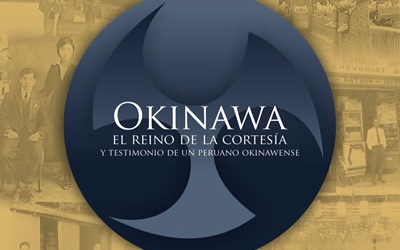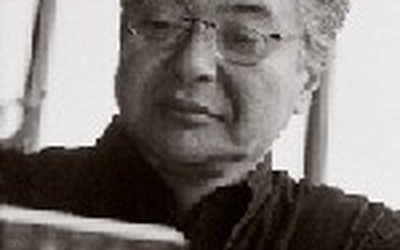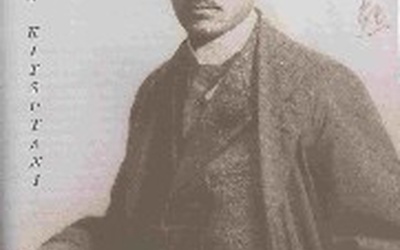Being Nikkei in Peru: A mark of identity

The Nikkei identity in Peru was built in a multiethnic and multicultural landscape. This historical experience was carried out while maintaining the traditions and customs inherited from Japanese cultures, and was characterized by its contradictions and heterogeneity. Today, being Nikkei in Peru is a valuable and irreplaceable brand that is permeating the different political, artistic, gastronomic, musical, folkloric and sports spaces, among others. My articles will provide an overview of this insertion that operated throughout more than one hundred years of Japanese presence in Peru.
Stories from this series

The Pleasure of Being a Nikkei Okinawan in Latin America
Aug. 5, 2008 • Doris Moromisato
Argentina and Brazil, the two giants of South America, celebrate this year the first centenary of Okinawan immigration. Its programs include concerts, forums, sports tournaments and eisa or artistic marches. Coincidentally, in Peru the book Okinawa: the kingdom of courtesy and testimony of an Okinawan Peruvian by Ricardo Munehide Ganaja Kamisato has just been published, which sheds light on a common theme for the majority of Okinawan Nikkei communities: the theme of search of a Japanese-Okinawa identity and, in this …

Love and hate for Alberto Fujimori: testimony of a Peruvian Nikkei
April 15, 2008 • Doris Moromisato
Never, in my entire life as a poet, had I felt in such an ambivalent situation as when I was asked to recite against President Alberto Fujimori. It was an act of protest against his attitude of remaining in power. Upon arriving, I realized that in the crowd I was the only participant of Asian origin. I confess: when it was my turn to take the stand, I simply trembled and my Western postmodern convictions began to give way to …

Anti-Japanism in Peru: history and new attacks
Nov. 6, 2007 • Doris Moromisato
Despite more than one hundred years of Japanese presence, the fusion between their descendants and Peru has not occurred. Although there is a deep attempt at integration and unity, the historical experience of mutual distrust between both parties has weighed more. The ruling classes of the first half of the 20th century complained to the Japanese about their lack of willingness to be Peruvian. And the Japanese accused them of racial prejudice and explicit anti-Japanism. In truth, the wounds inflicted …

First social and union organizations of the Japanese community in Peru
Sept. 18, 2007 • Doris Moromisato
The history of Nikkei organizations in Peru has a very clear moment: before and after the Second World War. From 1909 until the end of the 1930s, immigrants had formed hundreds of associations, labor and commercial unions, schools, women's groups, newspapers, among others, throughout Peruvian territory. They served to keep them united, repeating the customs and rituals of their lands of origin, while they learned the habits and regulations of Peruvian society. Once the war was over, their descendants continued …

Nikkei image and discourse in Peruvian literature
Aug. 21, 2007 • Doris Moromisato
Through talent and rich historical experience, the Japanese presence is already part of the literary tradition in Peru. Established Peruvian writers, such as José María Arguedas or Mario Vargas Llosa, have inserted characters of Japanese origin into their narratives who show an image that is not fair or trustworthy since they turn out to be failed and marginal people in the national context. Fortunately, since the postwar period and especially since the 1970s, the Japanese descendants themselves made their literary …

Power, fame and social recognition. Nikkei in public and political spaces in Peru
June 13, 2007 • Doris Moromisato
For one hundred years, the Japanese presence was present in all areas of Peru, as its members ventured into various public areas. From a pioneering strike in 1899 to a Nikkei president who governed the country's destiny for ten years, passing through athletes, politicians and legislators. While it is true that the Nikkei community has always been in the news, it is also true that it has maintained an ambiguous relationship of integration and distance with its Peruvian compatriots. This …
 We’re looking for stories like yours!
Submit your article, essay, fiction, or poetry to be included in our archive of global Nikkei stories.
Learn More
We’re looking for stories like yours!
Submit your article, essay, fiction, or poetry to be included in our archive of global Nikkei stories.
Learn More
New Site Design
See exciting new changes to Discover Nikkei. Find out what’s new and what’s coming soon! Learn MoreDoris Moromisato is a poet, writer, cultural manager, researcher on gender issues and the Japanese presence in Peru. She is the Goodwill Ambassador of Okinawa. Graduated in Law and Political Science from the Universidad Nacional Mayor de San Marcos. He published 4 books of poetry and 3 of chronicles, his stories and essays make up various anthologies, his poems have been translated into several languages. (Photo: Jaidith Soto)
Last updated October 2020

Discover Nikkei Updates



See exciting new changes to Discover Nikkei. Find out what’s new and what’s coming soon!

